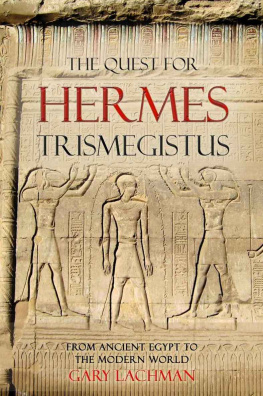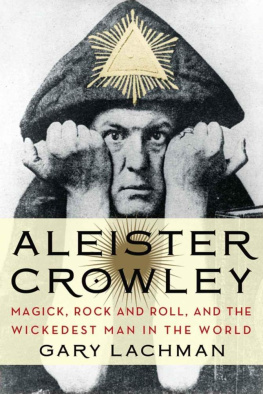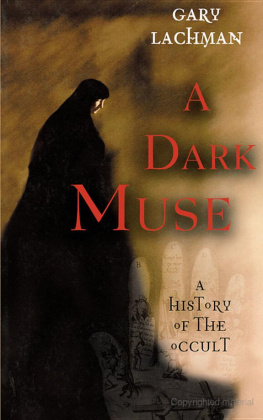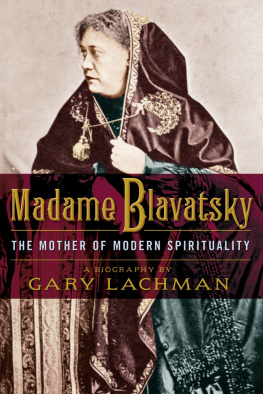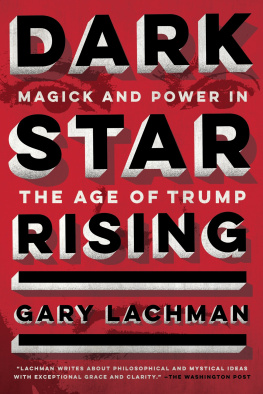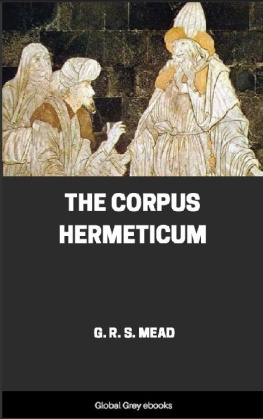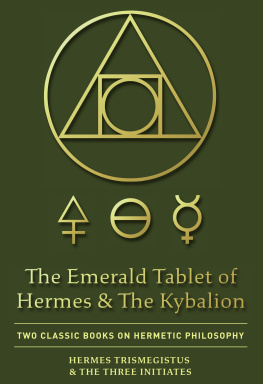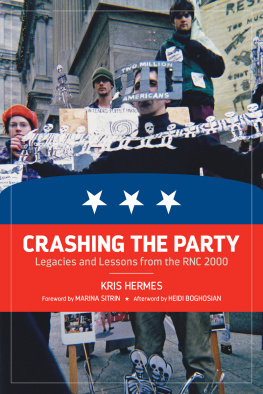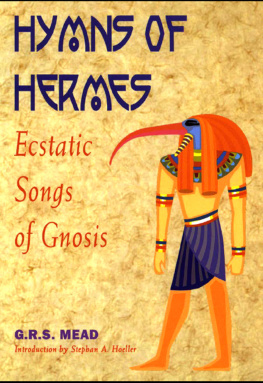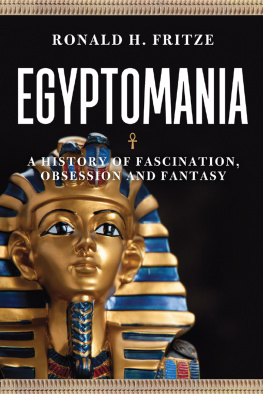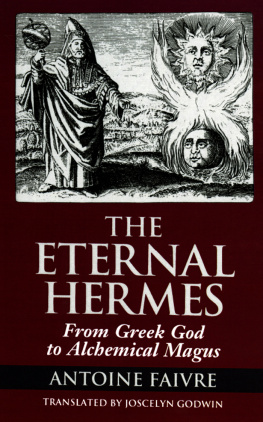Many people have helped make this book, some perhaps in ways they might not realize. Special thanks however goes to Joscelyn Godwin, whose conversation and insight helped inform much of it. James Hamilton was a great aid in research material, and Robert Boerth and the faculty and staff of Trinity Preparatory School, Orlando, were a godsend when I was stranded in Florida because of a volcano in Iceland. Because of their generosity I was able to work on some last minute changes in comfort. I must also thank Colin Wilson, whose work remains the central influence on my own. My thanks also goes to the staff of the British Library and to the library of the Theosophical Society in London, without whom research for the book would have proved more difficult, and to Christopher Moore of Floris Books for his enthusiasm about the idea. As always my thanks goes to my sons, Joshua and Max, and their mother Ruth, for enlivening days sunk in Hermetic lore with bright moments of sunshine.
Introduction: The Hermetic Quest
In 1463, Marsilio Ficino, scribe to the great Florentine power broker Cosimo de Medici, was preparing to translate the complete works of the divine Plato from his native Greek into Latin, when his patron asked him to put these aside and turn his attention to something else. That Cosimo should make such a request was surprising. Only recently the great patron of the arts and learning had asked Ficino to translate Plato so that he could read the philosophers complete works before he died. Cosimo, a very old man for that time (he was 74) more than likely knew he didnt have long to live, yet if it had been his desire to read all of Plato a considerable task, even with a lifetime ahead of you he must have surely known that taking Ficino off the job would make this impossible. That he had Platos works to be translated at all was sheer luck; it was only through the uncertain twists of history that they had become available. The threat of the Turks had led many Christian scholars to abandon Constantinople (modern Istanbul), capital of the Byzantine empire and the second Rome, and head west. The city would fall to the Ottomans in 1453, and to escape Islamic intolerance, the intelligentsia took what they could of their libraries and fled. It was this exodus that brought Plato to Ficinos eager hands, but it also brought the work that took him out of them.
Leonardo de Pistoia, a monk who worked for Cosimo as an agent, purchasing any interesting scholarly works he came across, had discovered an item in Macedonia that he was sure his boss would appreciate. It was a near complete edition of a collection of texts whose existence was suspected, but which had been lost to the west since late antiquity and the beginning of the Dark Ages. Its author was a figure of vast renown, one of the great sages of the past, perhaps the greatest, a magician, philosopher and teacher who many believed had lived before the Flood, and whose teachings were the foundation of a great tradition of wisdom through the ages a wisdom that Plato himself, Cosimos favourite, had partaken of. Cosimos hunger for ideas, for philosophy, and for the intellectual treasures of the past, had sent his agents far and wide, in search of lost knowledge, and they had returned with many marvels. But de Pistoia must have known that he had hit the jackpot. Plato and his disciples were nothing to sneeze at, surely. But what he had here was something else. Cosimo would be pleased. The work de Pistoia brought back to Florence from the land of Alexander the Great was the Corpus Hermeticum , and its author was, depending on your sources, a god, a magician, or something in between: the fabled Hermes Trismegistus, thrice-great Hermes.
It was no wonder that Cosimo told Ficino to put Plato aside and to get to work on this, and no wonder that Ficino immediately agreed. They both knew from the church fathers, from Lactantius and Augustine, that Hermes Trismegistus was far, far earlier than Plato, and that hunger for the wisdom of the past, for the origin and source of things, that characterizes the time we call the Renaissance, demanded he take precedence. Cosimo and Ficino knew that Hermes Trismegistus was the initiator of the prisca theologia , that perennial philosophy they both were eager to absorb, and now they had in their hands the actual words of the Great Teacher. So it made perfect sense that before he read Plato, Cosimo would read Hermes. He did, and soon after, he died, in 1464. Only after this did Ficino return to translating Plato.
Hermetic traces
As the historian Frances Yates, who tells this story, remarked, the situation is extraordinary. There is Plato, to whom, as the philosopher Alfred North Whitehead said, all subsequent western philosophy is merely a footnote, all ready to be translated, and at the last minute he is put aside, to make room for who ? Hermes Trismegistus?
Although his cachet today is not quite what it once was, if asked to name a philosopher, most people would come up with at least one, Plato, or Socrates, who they would know of through Plato. But ask someone if they know who Hermes Trismegistus is, and unless you happen to pick a student of western esotericism, youll more than likely get that who? and a shaking head. Yet half a millennium ago, this was not the case. In late antiquity, throughout the Middle Ages, during the Renaissance, and up to the beginning of our modern times, Hermes Trismegistus was a name to conjure with, literally, ranking, not only with Plato, but with Moses and, in some cases, Jesus Christ. Today most people might have some sense of the Greek god Hermes, and have a vague idea of a character with winged sandals and a funny helmet, who could run very fast an attribute of his Roman equivalent, Mercury and who was a messenger for the gods. If they are American, and of a certain age, they might remember the Mercury dime, a ten cent piece taken out of circulation in 1945. Some may think of the logo for FTD florists, who have a winged Mercury swiftly delivering a bouquet. And an observant few might note that Hermes/Mercury often stands guard over banks; as the god of merchants (and also of thieves, which for some may seem ironically apt) this makes sense. But these few crumbs of iconographic significance are a paltry legacy for a figure who once commanded enormous respect from philosophers, theologians, and even scientists. And the epithet Trismegistus or thrice-great, which characterized the author of the Corpus Hermeticum , would undoubtedly baffle most people today. Great, great, great, you say? Isnt that a bit over the top?
Cosimo didnt think so, nor did Ficino, nor did the many who read his translations of these strange, mystical texts. First printed in 1471, they ran to sixteen editions by the end of the next century, and appeared in many translations and in many other collections. Although its commonly understood that the Renaissance was fuelled by the rediscovery of the knowledge and literature of the ancients, of Plato and his school, whats less known is how influential the Corpus Hermeticum was on one of the pivotal moments of western consciousness. The man responsible for this, it seems, was the Byzantine Neoplatonic philosopher George Gemistos Plethon. Plethon had studied Zoroaster, the Chaldean Oracles, and astrology, and while in Florence during the Council of Ferrara-Florence (14381445) the failed attempt to heal the rift between the Catholic and Orthodox churches he lectured Cosimo and his circle on what he called the primal theology, the revelation given to mankind at the dawn of time, and the essence of the worlds great religions. Plethons discourses on Plato, and his Alexandrian followers Plotinus, Porphyry, Proclus, and Iamblichus, so impressed Cosimo and his friends that they dubbed him the second Plato. A perhaps greater tribute to Plethons inspiration was Cosimos desire to found a new Platonic Academy, which he did in 1462, with Ficino at its head. The original Academy had started in Athens in 387 BC, but by the first century AD it had petered out, and a revived Academy in 410 became a centre for Neoplatonic study, until it was closed down in 524 by Justinian I. Now, nearly a millennium later, Cosimos passion for Plato was responsible for a philosophical discussion group whose members would include Renaissance figures such as Pico della Mirandola and Michelangelo Buonarroti, and whose ideas would inform the great cultural movement behind the birth of Humanism and the modern world.

